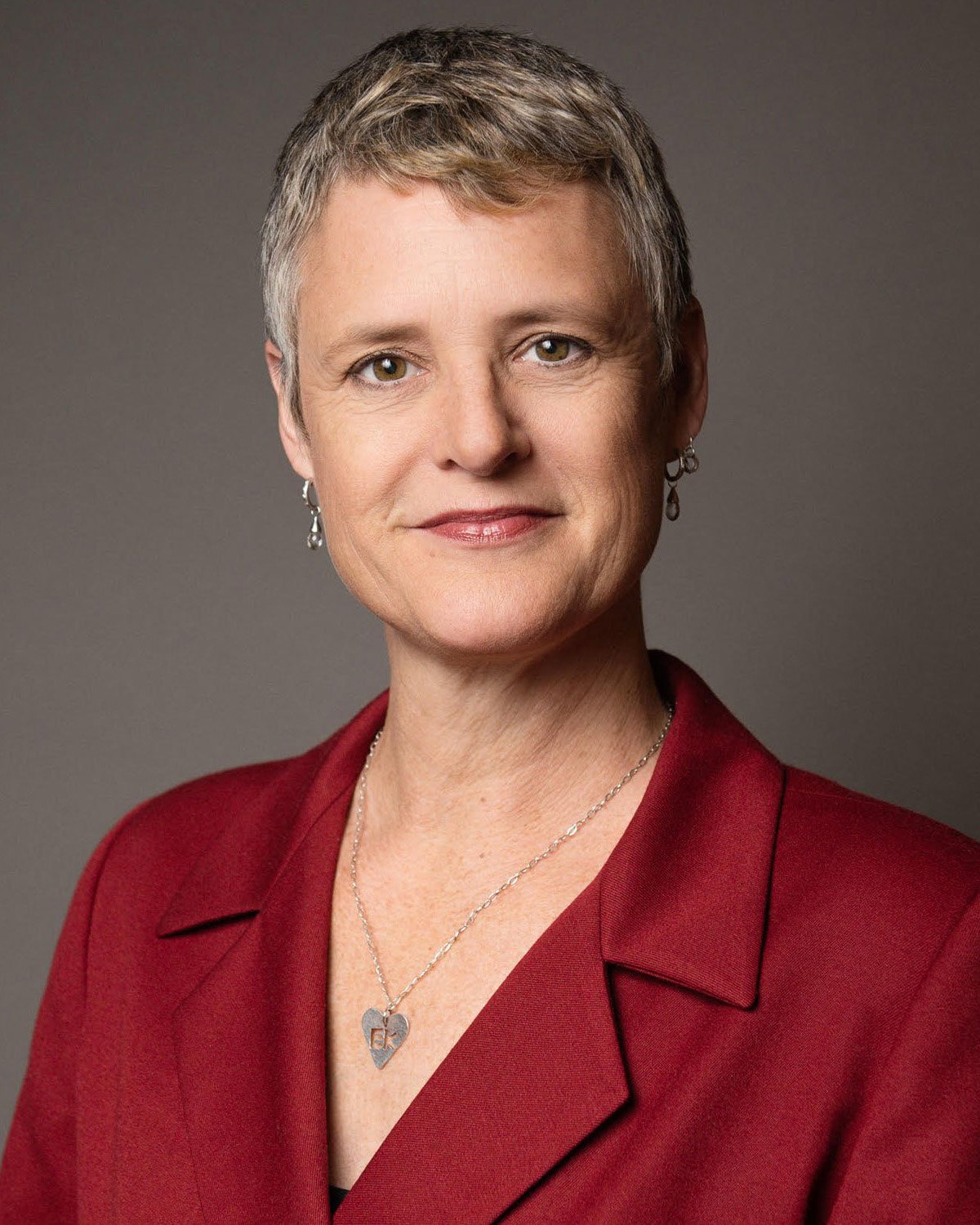You know the drill…
How a single Fort Worth ISD campus prompted a state takeover

The Texas Education Agency is taking over the Fort Worth Independent School District — a district with more than 70,000 students — because a campus with just over 300 sixth graders repeatedly failed to meet state academic standards.
While Leadership Academy at Forest Oak Sixth Grade ultimately set off the state’s ability to intervene, the threat of a state takeover has been looming over the district for nearly two decades — with the first dating back to 2008. The district has a history of struggling to bring students’ grades up across the city, especially at campuses in low-income neighborhoods with large Black and brown populations.
TEA Commissioner Mike Morath announced last week his decision to remove all decision-making power from elected Fort Worth ISD school board members. Soon, the state will replace them with a board of managers and a superintendent handpicked by Morath. The new set of appointed leaders will wield substantial power. They will preside over one of North Texas’ biggest school districts — around 135 campuses — and their responsibilities will range from deciding how to spend the district’s $1 billion budget to hiring the directors who will lead day-to-day operations such as bus transportation and campus maintenance.
The district has been on the upswing academically in the last two years. But TEA, under state law, can take over a school district when a school receives a failing grade on the state agency’s A-F accountability rating system for five consecutive years, and Leadership Academy at Forest Oak Sixth Grade received its fifth F in 2023. The ratings, which were recently unveiled, had been held back because several school districts had sued to block their release.
But long before the sixth-grade campus reached the threshold for a takeover, conversations of state intervention in Fort Worth had swirled around the community.
In 2008, Meadowbrook Middle School, a campus composed of around 60% Hispanic students and 35% Black students, had missed federal academic standards for years, which nearly led to a state takeover under the now-defunct No Child Left Behind Act.
In the years that followed, the district averted two other threats of an intervention. John T. White and Maude Logan elementaries endured a streak of failing grades and nearly met the takeover threshold before seeing improved scores.
Leadership Academy at Forest Oak Sixth Grade, which the district shuttered after the 2023-24 school year, was located in Glencrest, a largely Black and Hispanic neighborhood with a median household income far below the national average. The campus, which drew in refugee and immigrant newcomers, struggled with academic performance for years.
This is mostly an overview story, so if you missed earlier coverage this can catch you up.
Teachers, parents express hope, fear as Texas takes control of FWISD’s future
De Zavala Elementary parents see an opportunity through the state takeover of Fort Worth ISD: Possibly saving their school.
Teacher Scott Blanco-Davis and FWISD PTA Council President Lupe Lynch said they will continue pushing for better support for educators and increased parental engagement.
The United Educators Association’s Steven Poole, though, warned of a potential teacher exodus once the state fully assumes control.
Parents, FWISD staff and community members voiced hope and concerns Tuesday during the trustees’ first meeting since the Texas Education Agency launched a takeover of the 67,500-student district. The locally elected school board will soon lose its authority to the state.
“We’re at a crossroads,” De Zavala Elementary father Gabe Moreno said.
Moreno and other parents of De Zavala students repeatedly appealed for reconsideration of closing their south Fort Worth campus, which earned four straight A grades under the state’s academic accountability system. Trustees approved the closure of the school in May citing low enrollment.
High-performing schools should be replicated — not closed — if the state’s mission is to boost student success quickly, they said.
“I implore the TEA to reexamine the current strategy for school closures and for promoting schools that are meeting and exceeding standards,” De Zavala mother Liz Conville said.
[…]
Blanco-Davis has been a teacher since the early 1990s. He’s witnessed repeated leadership shifts over the past decade — some hitting the district worse than others, he said.
“I don’t know where our future lies. I don’t know what TEA is going to do. I do know that I’ve been worried about the district for a long time,” said Blanco-Davis, a science teacher at World Languages Institute.
He applied for a seat on the board of managers, he said.
Poole and the United Educators Association, which represents thousands of employees across the district, are also worried about the district’s future.
Speaking to trustees, Poole addressed his fear that teachers will leave in large numbers following the state’s intervention.
“Every Fort Worth student deserves a highly trained, certified teacher in front of them every single day,” Poole said.
We are familiar with those emotions and sentiments here in HISD. And good luck to the teacher who applied to be on the Board of Managers. No such luck for us here with that, but maybe you’ll fare better.
Fort Worth ISD Parents Fear the Same Chaos that State Takeover Has Brought to Houston ISD
FWISD board members wrote in a statement that TEA’s announcement came when the district was seeing academic gains. “Over the past year, our Board and Administration have worked tirelessly to strengthen instruction and accelerate student outcomes, said Board President Roxanne Martinez. “Our elected Board is in the best position to drive the sustainable improvements the Commissioner seeks.”
Zach Leonard, a parent with children attending FWISD who’s been organizing community members against the takeover, told the Texas Observer that they’ll continue to resist: “An appointed board of managers is beholden not to local citizens. They’re beholden to Mike Morath and ultimately, Greg Abbott.” Leonard said parents are worried FWISD could go through the same tumult that Houston ISD has experienced since 2023, when TEA took over the district and appointed the controversial ex-Dallas ISD superintendent Mike Miles to lead the district.
Miles has been touting improved academic ratings at Houston ISD (HISD) since he took charge: The district received no F rated campuses and fewer D rated campuses in the state’s latest ratings. But critics warn Miles’ proclaimed success has come at the expense of its schools’ leadership, teachers, and students.
Reports from the Houston Chronicle and Texas Monthly have revealed that Miles inflated STAAR scores by excluding students at struggling schools from advanced math and science courses and delaying participation in those STAAR exams by a year.
Parents, students, and teachers in HISD have all complained of how classroom learning has turned exclusively into test-prep: libraries have been replaced with disciplinary centers, science labs with worksheets, essay writing with multiple choice tests, and reading whole books with reading passages from the STAAR test. Each district-scripted lesson ends with a 5-minute multiple choice quiz.
“It’s not a sustainable model for the future. It’s not true education. It’s just test prep,” Leonard said.
[…]
The state takeover in Fort Worth could be followed by others in Beaumont, Connally, Wichita Falls, and Lake Worth ISDs, which all received a fifth consecutive failing grade at one of its schools after the 2024-25 school year.
“It’s not just a Fort Worth ISD or Houston ISD issue. This is a statewide issue,” Leonard said.
Yep. And good luck to those other districts as well. One wonders if the TEA actually has the capacity to manage all these takeovers, if they come to pass.
The Takeover of Texas Public Schools: Mike Morath, AJ Crabill, TPPF and the Tyranny of “Lone Star Governance”
In April 2016, Governor Greg Abbott appointed Mike Morath, a former Dallas ISD trustee, to serve as Texas Commissioner of Education. One of Morath’s first major moves was to bring in AJ Crabill, formerly known as Airick West, as the Texas Education Agency’s Deputy Commissioner of Governance.
By October of that same year, Crabill sent letters to superintendents and school boards across eleven districts, including Dallas, Houston, and Fort Worth. Those letters ordered them to attend his new Lone Star Governance training. The message was clear. Comply, or face state intervention.
These sessions were presented as tools to improve “student outcomes,” but in practice they became a top-down model that stripped elected school boards of their decision-making authority and replaced local leadership with state-driven oversight.
[…]
Where is the independent research proving that Lone Star Governance actually improves schools?
That question has followed Morath’s TEA since Crabill’s first letters in 2016. Parents and analysts have been warning for years that this model was never about helping children.
Meg Bakich, a public school advocate urged the FWISD board to focus on inputs rather than outcomes manufactured by bureaucrats. She was right. The results tell the story.
According to a 2025 Austin American-Statesman analysis, the gap in performance between Lone Star Governance districts and others has grown worse. In 2018, districts using LSG averaged 84 points compared to 86 points for other districts. By 2023, that gap had widened to 74 versus 81. Several of those same LSG districts are now under state intervention for lack of progress.
That is not reform. It is proof that Lone Star Governance was never intended to work.
I don’t know enough about this subject to comment, but I’d like to know more. Seems like this is a good opportunity for some data-driven reporting.
Fort Worth ISD takeover was largely based on STAAR, despite plans to replace it
The state takeover of the Fort Worth Independent School District is largely based on student performance on the State of Texas Assessments of Academic Readiness — a testing system that came under scrutiny this year and led state lawmakers to replace it over concerns that it set students up for failure.
The widespread criticism of STAAR has prompted questions about the fairness of the takeover, including whether the state should replace an elected school board and a superintendent if the test driving the decision does not adequately capture student learning.
[…]
Abbott recently signed the law to get rid of STAAR, which will phase out the test by the 2027-28 academic year and replace it with three shorter exams. The governor’s office in a statement did not address the critiques of the test or the fairness of the accountability system. Andrew Mahaleris, a spokesperson, instead reiterated that Abbott “supports appointing a board of managers for Fort Worth ISD to ensure students receive a top-quality education.” He highlighted that the Houston school district takeover has resulted in improved test results.Texas Education Agency spokesperson Jake Kobersky pointed to a state-commissioned study that concluded that the 2019 and 2020 versions of the test mostly aligned with Texas’ content and learning standards. The reports concluded that students were mostly capable of understanding what they were reading on the exam. Texas rolled out a revamped version of STAAR during the 2022-23 school year.
Prior to the 2025 legislative sessions, the exam had long faced criticism for concerns it evaluated students unfairly. It not only determines how the state holds schools accountable for subpar academic performance, but the test also decides whether students can graduate high school and whether teachers in certain districts receive bonuses worth thousands of dollars.
Educators say that many districts have focused heavily on “teaching to the test” because of STAAR’s high-stakes nature. In the eyes of Janet Harrison, an instructor of more than two decades who was recently hired to teach literacy in the Fort Worth district, Texas children have missed out on critical learning opportunities because of their schools’ hyperfocus on STAAR.
“You’re not preparing your students to read, write, and think, and do math,” Harrison said. “Basically, you’re teaching them how to take one particular kind of test, and statewide … yes, we are absolutely setting our students up for failure.”
If that story doesn’t get some people mad, I don’t know what would.




















